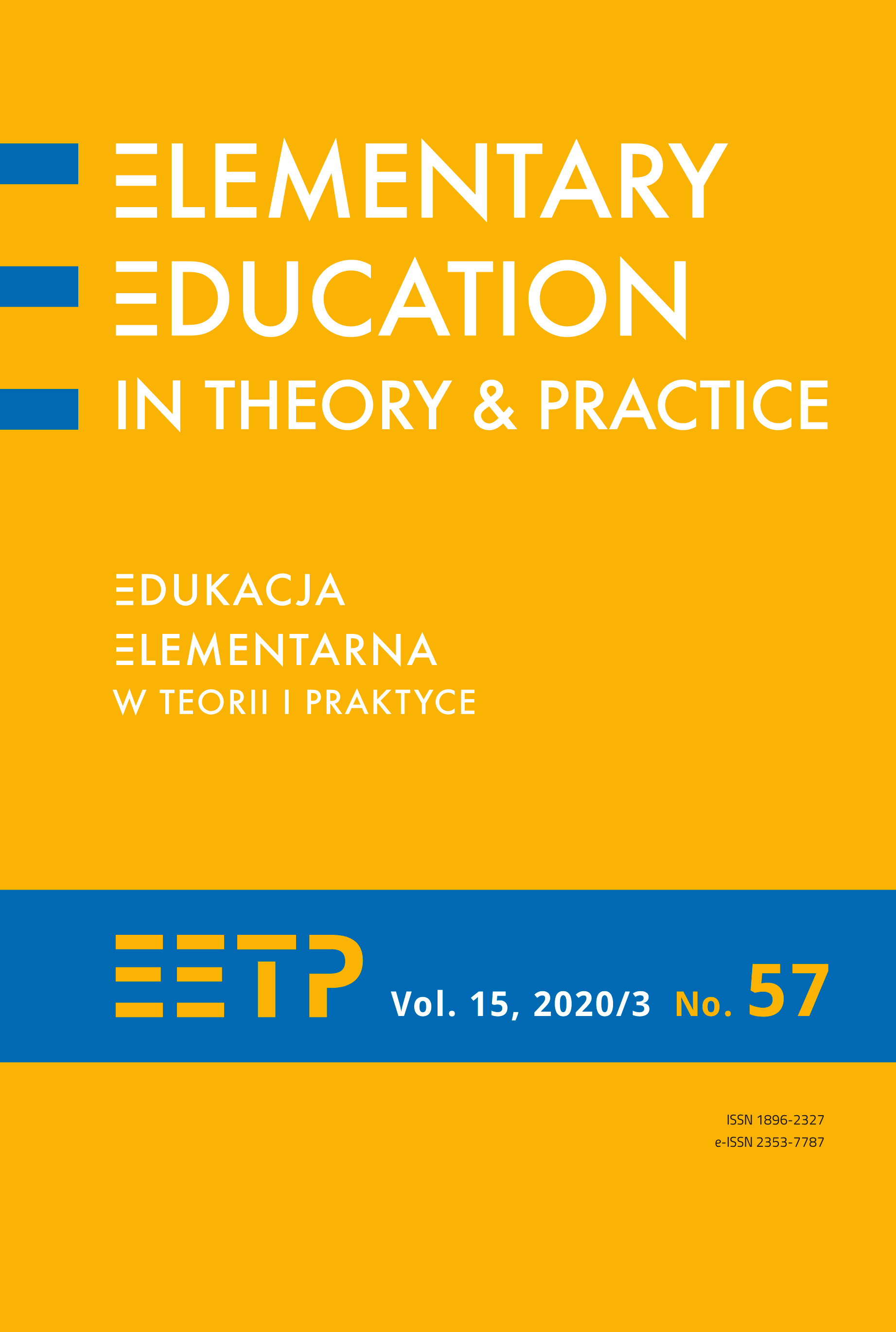Inkluzja uczniów z doświadczeniem migracji w czasach pandemii Covid-19
Including pupils who have experienced migration during the COVID-19 pandemic
Author(s): Ewa ŻmijewskaSubject(s): Social Sciences, Education, Inclusive Education / Inclusion
Published by: Uniwersytet Ignatianum w Krakowie
Keywords: COVID-19 pandemic;inclusive education;online learning;special educational needs; students who have experienced migration;
Summary/Abstract: The COVID-19 pandemic, which has rapidly spread globally since the beginning of 2020, poses a number of challenges for the educational system. Educational institutions have been closed, and teaching/learning is now being done online. The coexistence of these two events, namely, online learning and pupils who have experienced migration in Polish schools, serve as the starting point for my study. The aim of the study is to obtain feedback from early years teachers on the possible inclusion of pupils who have experienced migration in the online learning process and to identify the self-reported pri- orities for teachers’ tasks during the pandemic and the actual ways in which teachers offer opportunities for inclusion to the students involved in the study. An online survey was used in the study as the research method. The article is composed of two parts: the theoretical part, which describes the educational situation of the students who have experienced migration and selected issues associated with inclusive education, and the empirical part, which provides analysis and interpretation of the data obtained in the study. The study offers conclusions on the hierarchy of priorities for teachers’ tasks (the majority of the respondents mentioned “providing emotional support to pupils”) and the particulars of including students who have experienced migration into the online learning process (a majority of the teachers reported the need for more personalized teaching and close cooperation with pupils’ families). Given the number of respondents (83 teachers) and the survey methodology, the results should be treated with caution. That said, they are worth sharing as an inspiration for early years teachers to seek and reflect on their own solutions to the problem.
Journal: Edukacja Elementarna w Teorii i Praktyce
- Issue Year: 15/2020
- Issue No: 3 (57)
- Page Range: 67-79
- Page Count: 13
- Language: English, Polish

